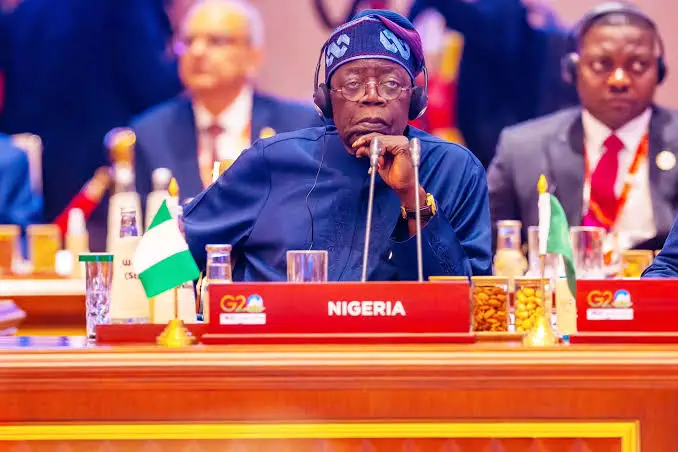The Group of 20, made up of 19 richest developed and developing countries in the world and the European Union (EU), held its 18th summit on September 9 and 10 in New Delhi, the capital of India, with the theme ‘One World, One Family, One Future’. With the inclusion of the African Union (AU) at the 18th summit in India, the G20 is now made up of 21 members.
The G20, as it is most popularly called, was established on 26th September, 1999, for the purpose of bringing together important industrialized and developing economies to discuss key issues that affect the global economy and to find working solutions to them.
The G20 countries collectively account for about 80% of the Gross World Product (GWP), 75% of global trade as well as two-thirds of the world population.
Although not a member, Nigeria was specially invited to the summit by the Prime Minister of India, Narendra Modi, in his capacity as the host of the event.
FG urged to create enabling environment for women to thrive
FG’ll not write off your debts, AMCON warns debtors
That Nigeria was invited to the summit despite not being a member indicates that the world recognises the growing profile and importance of Nigeria in global affairs.
Underscoring the significance of this, the Minister of Foreign Affairs, Ambassador Yussuf Tuggar stated, “We feel that Nigeria should be invited…being the most populous country in Africa and the largest economy. So 15% of Africa which Nigeria is, in terms of population, should be included in the same way that other European countries are included.”
President Bola Ahmed Tinubu, who led the Nigerian delegation, used the opportunity of his presence to meet with other world leaders, statesmen and heads of global institutions. He also engaged with leading businessmen and potential investors who attended the summit.
Out of these engagements came pledges worth about 14 billion dollars by Indian industrial firms in potential investment into various sectors of the Nigerian economy. These areas range from steel development and production, petrochemicals, energy and power, as well as telecommunications.
Additionally, Nigeria approved a one billion dollar partnership agreement to assist in the upgrade of the Defence Industries Corporation of Nigeria (DICON) to enable it to achieve 40% self-sufficiency in the production of defence equipment.
By all considerations, Nigeria’s presence at the G20 in India can be described as a success. A clear pointer to this was of President Tinubu being a cynosure at the event as he met with world leaders like President Joe Biden of America, EU President Ursula von der Leyen, German Chancellor Olaf Scholz and President Lula da Silva of Brazil among others. This will no doubt provide President Tinubu with the necessary leverage in his continuing engagement with world leaders for his stated intention to pursue economic development of the country.
The billions worth of investment pledges and economic cooperation from not only India, but other industrial countries also can be considered a major milestone on the road to the envisaged prosperity of Nigeria.
We observe that being the most populous as well as the largest economy in Africa and the fact that it has played and continues to play key roles in continental affairs, Nigeria has always attracted the attention of major global players. But as always, the sticking point has to do with how we manage these opportunities. Potential investors would like to see a favourable investment climate of ease of doing business, transparency, infrastructure, security etc before they commit themselves. These are the major identified challenges in the Nigerian business environment which the government must tackle comprehensively if we hope to attract and retain the interest of potential investors. In this regard, we must bear in mind that there are other investment destinations investors can switch to if we do not get our acts together. Also, we call on the government, especially the Ministry of Foreign Affairs and other relevant MDAs, to follow up seriously on the deals recorded during this trip to ensure that they are fully actualized.
Going forward, the government will do well to pay keen attention to the on-going seismic changes in the global geo-strategic structure. The G20 is but one of the tectonic plates of this development. There are others too like the BRICS and MINT. All these groupings are indicative of these changes in the global geo-strategic architecture.
We recommend that Nigeria should endeavour to not just take keen interest in these developments, but should make efforts to join them, especially the G20 which is relatively more inclusive and offers better opportunities for economic engagements and assistance.

 Join Daily Trust WhatsApp Community For Quick Access To News and Happenings Around You.
Join Daily Trust WhatsApp Community For Quick Access To News and Happenings Around You.


